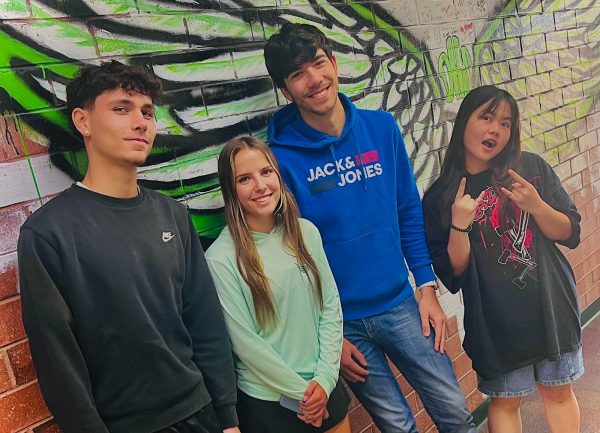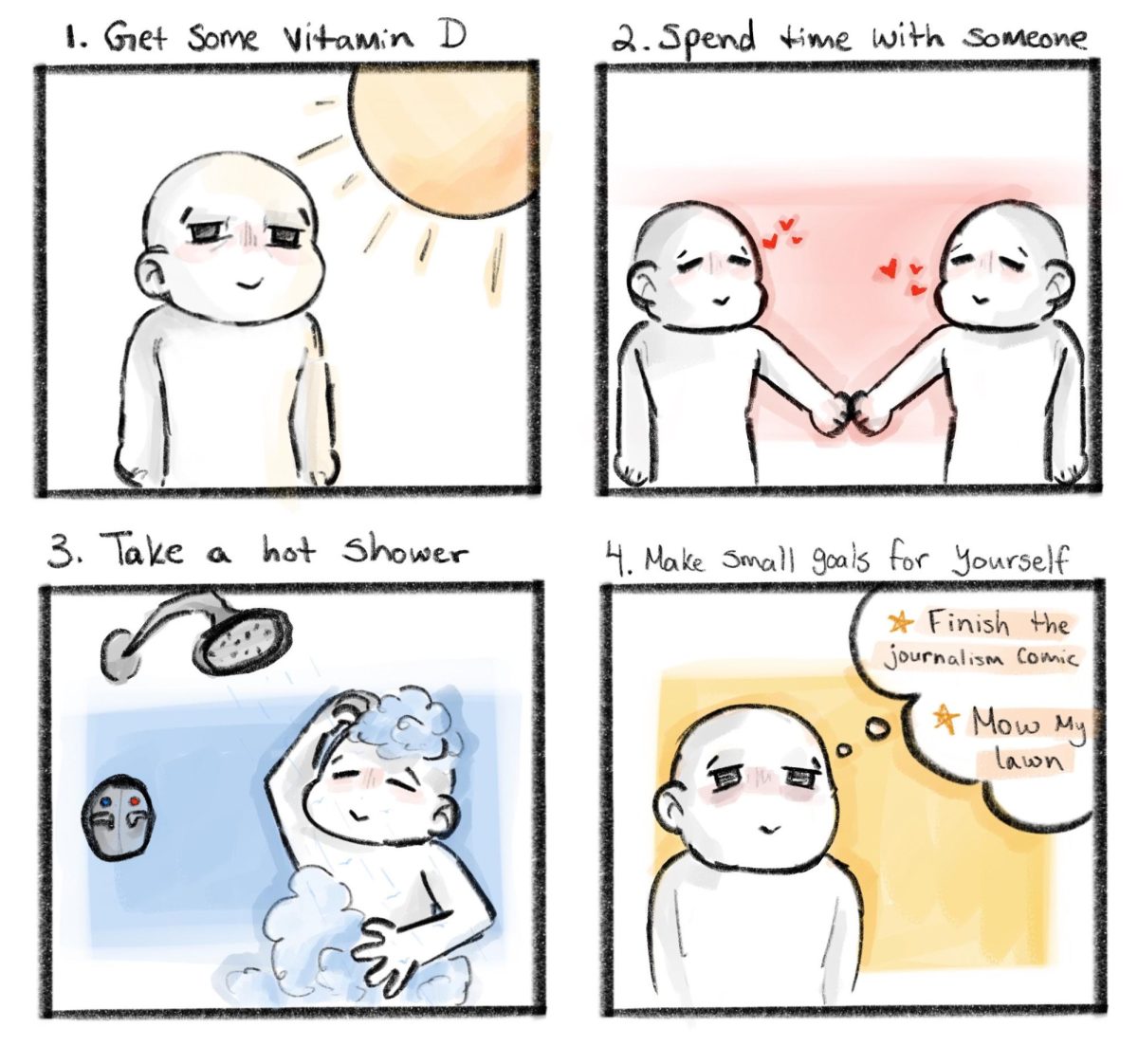
Students from left to right: Gideon Ruescher, Sabrina Ruiz, Marco Arangio, and Apitchaya (Jolly) Pathumporn
Have you ever wanted to learn in another country? The Rotary Youth Program is a way that you can along with many other programs students are able to visit other countries and go to those schools for a year this is how Marco Arangio, Gideon Ruescher, Jolly, and Sabina Ruiz were able to come to Delta High as of now there is no limit to how many students the school are able to take.
Most know that exchange students are able to come to America to learn and most of the time you don’t see them again, but what about the classes they have to take? Do they earn any credits?
“Most foreign exchange students are required to take American history or American government so they can learn the difference between their home country and where they are coming from, and some students come here and take specific classes that relate back to their home country and others come just as a no-credit bearing semester or year,” said guidance counselor Holly Crowder.
One of the main issues that exchange students have to face is finding homes to stay in until their semester or year is over. Families that sign up are called host families. They make sure the student has transportation to and from school, as well as healthy meals. Most families will go through a welfare check of sorts to make sure the student is going into a safe and caring home.
The exchange students all had different reasons for wanting to come and study abroad here in the United States, whether that be to experience American customs or to discover new classes that are offered at our high school that are not offered in their home countries.
Most of the exchange students have experienced a form of “culture shock” when attending Delta High School. Jolly Pathumporn, the exchange student from Thailand, said “In here, they don’t have a lot of stray dogs or cats, but in Thailand, we have a lot of stranger dogs and cats walking around the street.” Stray animals have been a daily part of Thailand for many years due to several influences, and strays are rarely spayed or neutered.
Sabina Ruiz, the exchange student from Spain said “I like it here and I would want to come back for school maybe like college” In Spain the education system is very different and the classes are polar opposites compared to the ones in Spain students have more leverage when it comes to their classes but in America, the school might not give you the classes you are hoping for and they mainly focus on the ones that you need to graduate.
Marco Arangio, the exchange student from Italy, said “Cold coffee, sweet coffee, too much sugar in everything. The school is huge. The roads are huge. Gas prices are low. Food prices are really high.” Italy, a country where the roads are often narrow, takes coffee and espresso as a large part of its identity. Coffee has been part of Italian culture since it arrived through trade in the 16th century, which at the time represented an international reference port for trade.
Gideon Ruescher, the exchange student from Austria, said “That [culture shock] was probably that every family has at least one truck in their possession, but like also that every family just has so many cars in general. Where I’m from, we use public transportation, especially as teenagers.” Public transportation here in America is very different than those in European countries such as Austria. Americans rely on their own vehicles to travel around due to the extensive roads and highways that are present in our cities. However, in Austria, public transportation is far more reliable, and fairly cheap to travel around.
